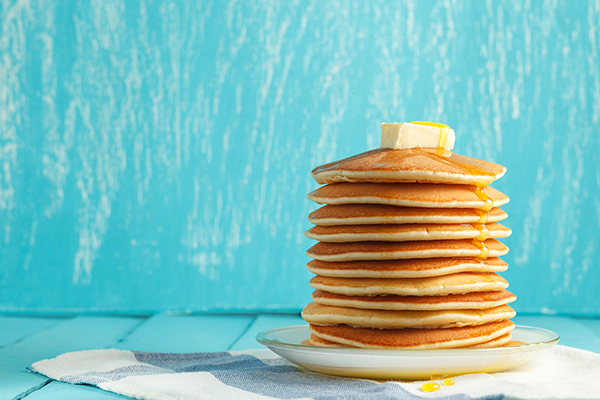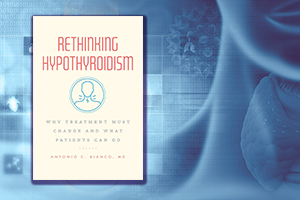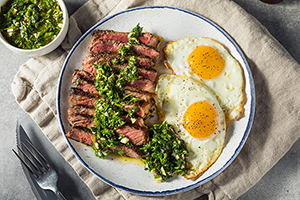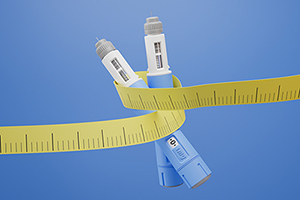



| By Dr. Ronald Hoffman

A big new study in the British Medical Journal concludes that the hoary advice, oft-repeated by health professionals and the media, that “Breakfast is the most important meal of the day,” is not applicable to the majority of people.
Previous studies that have been invoked to demonstrate an advantage to eating breakfast have generally been observational. Therefore, breakfasters might have been more conscientious individuals who generally ate more carefully, allocated more time to exercise and sleep, were likely more educated and more affluent, and thus engaged in more health-promoting habits than merely eating breakfast that kept them slim and fit.
So instead they looked to randomized controlled trials—the so-called “Gold Standards” of scientific research—to eliminate confounding factors. In such experiments, groups are randomized into a breakfast group and compared to a non-breakfast group with comparable health and socioecomic characteristics. They are then followed over a certain period of time, and the results are contrasted.
After reviewing more than 600 studies, they narrowed it down to just 13 that met stringent criteria of validity. This is not surprising, because sloppy methodology and bias can undermine the significance of trial results when studying lifestyle factors like eating breakfast.
Results were mixed. Some studies showed advantages of eating breakfast—others not. But overall, the meta-analysis did not demonstrate weight loss in participants who consumed breakfast compared with those who did not.
Moreover, breakfasters didn’t “fill up” and eat less in subsequent meals. In fact, their overall daily food intake was increased—by over 200 calories!
Contrary to the frequently-asserted argument that eating breakfast somehow stokes people’s metabolic rates, the researchers found no such effect. Nor was physical activity enhanced in breakfasters, thus enabling more caloric burn-off.
They even looked at a slew of hormones affecting appetite and metabolism that might be influenced by eating breakfast: leptin, ghrelin, glucose, insulin, adiponectin and HOMA-IR (a measure of insulin resistance). No difference between breakfasters and non-breakfasters!
CAVEAT: This is a meta-analysis which averages-out the results of a large group of individuals. Hence, some participants—a significant minority—may have benefited from eating breakfast. But when the numbers were crunched, their gains were canceled out by the outcomes of those for whom breakfast was not a boon. Message: Results may vary!
Another concern with the BMJ study was the variable quality of the breakfasts included in the meta-analysis. Were they low-carb or high carb? Was there adequate protein and fat? What was their fiber content? What was the glycemic load of the meals? That could make a difference!
The BMJ researchers conclude: “Taken together, the data do not support the assumption that omitting breakfast might lead to overconsumption of calories later in the day. Instead, they suggest that skipping breakfast might be an effective means to reduce total daily energy intake, and that skipping breakfast does not cause greater appetite in the afternoon.”
Further they assert: “While breakfast has been advocated as the most important meal of the day in the media since 1917, there is a paucity of evidence to support breakfast consumption as a strategy to achieve weight loss, including in adults with overweight or obesity.”
These findings vindicate what I (presciently) wrote about in 2014 in an article entitled “Rethinking Breakfast”:
The traditional wisdom, endlessly purveyed by young, slender dieticians on TV, is that you should eat a hearty breakfast. The mantra is that “breakfast is the most important meal” and that it sets the tone for optimal metabolism throughout the day.
Indeed there may be wisdom and science to back this up. But it depends what you eat. Studies show that if you eat a breakfast of sugary cereal or refined pastry or white toast with jam, your blood sugar will skyrocket, generating a compensatory burst of insulin. Within a couple of hours, your blood sugar will crash, and you will be famished. The subsequent ricochets of glucose will send your appetite and mood careening for the rest of the day.
When I tell patients this, many of them agree, saying that a good breakfast “anchors” them for the rest of the day and prevents indiscriminate eating later on. Others protest that if they eat breakfast, it kindles their appetites and they’re off to the races on their food cravings. The latter group often says: “I’m fine until I eat, then it’s downhill for the rest of the day.”
Recently, some counterthought has been introduced into the breakfast controversy. With the popularity of “Intermittent Fasting,” some advocate that the longer we go without eating, the better it is for us. During the long period between dinner and a late brunch—sometimes up to 18 hours—the digestive apparatus rests and ketosis is induced–a metabolic state in which the body cannibalizes its own fat stores. Restricting eating to a narrow “window” of, say, eight hours per day is a modified and doable form of Intermittent Fasting.
[Whether or not eating breakfast is advisable, most studies agree that avoiding late meals (after around 6 P.M.) is a good strategy for losing weight.]
Advocates of Intermittent Fasting say it reduces insulin resistance, combats inflammation and even helps mood and memory because blood sugar is stabilized and the brain fuels itself with ketones.
I’m convinced that when it comes to breakfast, there’s no one-size-fits-all; it’s clearly a matter of different strokes for different folks!
So what are you? Are you a breakfast person? Or a skipper? Comment on this article on Facebook and tell us what works for you!
Though we think of declining estrogen as the hallmark of menopause, it's actually common for…

Up to 12 percent of Americans have ulcers at some point in life. Peptic ulcers…
Gallbladder disease is a modern illness. An estimated 20 million Americans have gallbladder disease. The…

Dr. Antonio Bianco, recipient of the American Thyroid Association’s John B. Stanbury Thyroid Pathophysiology Medal,…

There’s a misconception among low-carb dieters. Many people believe a low-carb diet is much higher…

New, more powerful weight loss drugs: Drugs like Wegovy, Rybelsus, Ozempic and Mounjaro/Zepbound are revolutionizing…

The Cannabinoid Connection: How CBD Transforms Pet Care and Human Health, Part 1

Our virtual voicemail is open 24/7, so there's no need to wait to submit your questions for Dr. Hoffman. Leave a message, and you may hear your question featured on the Intelligent Medicine radio program!